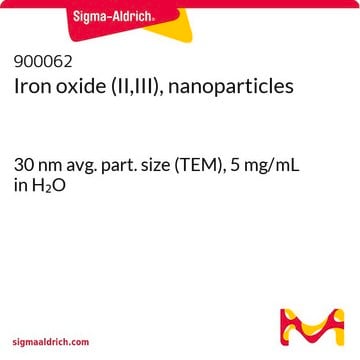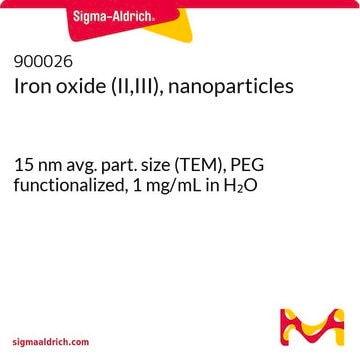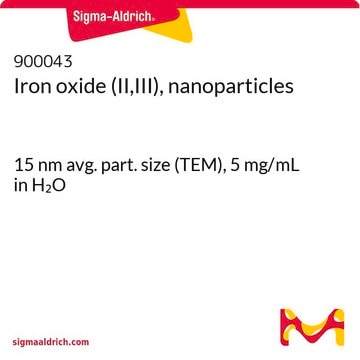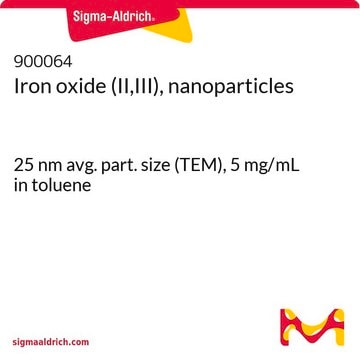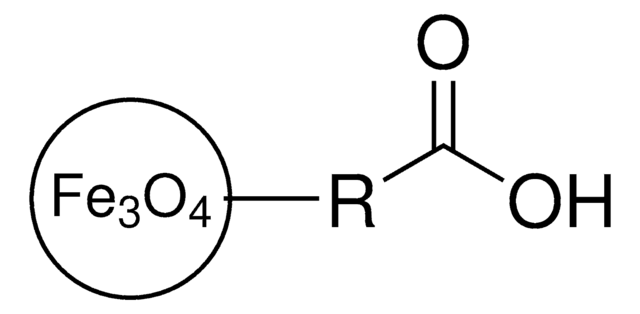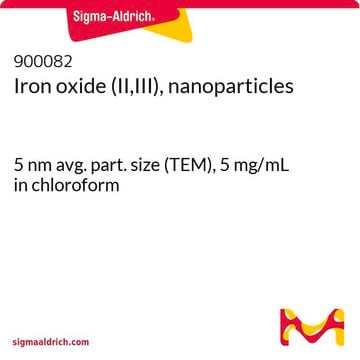900042
Iron oxide (II,III), nanoparticles
25 nm avg. part. size (TEM), 5 mg/mL in H2O
About This Item
Produits recommandés
Forme
dispersion
nanoparticles
Niveau de qualité
Concentration
5 mg/mL in H2O
Taille moy. des particules
25 nm (TEM)
Température de stockage
2-8°C
Vous recherchez des produits similaires ? Visite Guide de comparaison des produits
Application
Informations légales
Classe de danger pour l'eau (WGK)
WGK 3
Point d'éclair (°F)
>230.0 °F
Point d'éclair (°C)
> 110 °C
Faites votre choix parmi les versions les plus récentes :
Déjà en possession de ce produit ?
Retrouvez la documentation relative aux produits que vous avez récemment achetés dans la Bibliothèque de documents.
Les clients ont également consulté
Articles
Nanoparticle imaging agents enable stem cell tracking via various in vivo imaging techniques.
Nanoparticle imaging agents enable stem cell tracking via various in vivo imaging techniques.
Nanoparticle imaging agents enable stem cell tracking via various in vivo imaging techniques.
Nanoparticle imaging agents enable stem cell tracking via various in vivo imaging techniques.
Notre équipe de scientifiques dispose d'une expérience dans tous les secteurs de la recherche, notamment en sciences de la vie, science des matériaux, synthèse chimique, chromatographie, analyse et dans de nombreux autres domaines..
Contacter notre Service technique